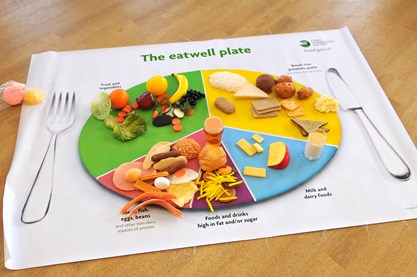
Nutrition and Dietetics
Introduction
Nutritionists and dietitians are health professionals who create diet plans for people. Teaching patients about healthy eating is a primary duty, as well as staying aware of developments in medicine and nutrition. However, there is a difference between dietetics and nutrition: dietetics focuses on food management, whereas nutrition focuses on the promotion of health through healthy food.
Nutrition and Dietetics Meaning
Dietitians: They plan, monitor, and supervise the diet for patients (with medical conditions like diabetes, food allergies, gastro-intestinal disorders etc.) across hospitals, clinics, health centres, sports centres or their own private clinics. Dietitians are responsible for recommending proper as well as corrective food and eating habits, while taking into account the patient’s health, lifestyle, age, potential allergies and food preferences.
To be a dietitian, you need to have compulsorily completed a bachelors and/or Masters/PG diploma degree in Dietetics (in which nutrition can be an added subject.) Some countries like USA/Canada require dietitians to clear an additional exam after their education in order to qualify to get a license/registration to practice.
Nutritionists: They can't plan diets for patients with medical problems. However they do help people achieve better health by advising on health and food choices. Their expertise lies in public health nutrition, community health, and tertiary education related to nutrition. Nutritionists can go into research as well as work as nutrition consultants and advisors, public health and health promotion officers, community development officers, quality and nutrition coordinators, food technologists etc.
A nutritionist can upgrade herself to become a dietician by studying the required dietetics course and getting a license (only in some countries.)
All dietitians can call themselves as “nutritionists” or “dietitian-nutritionist” but nutritionists cannot call themselves as “dietitians”.
ROLE OF A DIETICIAN
• Research the nutritive value of food
• Understand all food components
• Advise people on eating habits
• Plan diets that will improve health
Skills
- Organizational abilities
- Teamwork
- Aptitude for science
- A keen interest in health and diet
- Understanding of people from varied backgrounds
- Communication Skills
Eligibility
The courses in Nutrition and Dietetics are offered at –
Under-Graduate and Post-Graduate level.
There are institutes and universities in India offering courses viz. PG Diploma in Nutrition and Dietetics, B.Sc. (Food Science and Nutrition), B.Sc. Home Science and M.Sc. (Nutrition) etc.
The B.Sc. (Food Science and Nutrition) is a three year program.
How to become a Registered Dietician?
In order to become a registered dietician one needs to clear the RD exam conducted by the Indian Dietetic Association (www.idaindia.com.)
Entrance Exam for Foods & Nutrition
-
Indian Council of Agricultural Research (ICAR)- AIEEA
All India Entrance Examination for Admission (AIEEA)-UG shall be conducted for admission to Bachelor Degree programmes in Home Science (other than veterinary sciences), at Agricultural Universities on 15% of the University seats (100% seats in RLB CAU Jhansi, NDRI Karnal and Dr. RP CAU Pusa, Bihar)
Eligibility: 10+2 examination or equivalent/Inter (Agriculture) with PCM/ PCB/ PCMB/ PCA/ PCH subject combinations with 50% marks in aggregate.
- Delhi University, New Delhi
Course:
- B.Sc (Hons.) Food Technology
- B.Sc (Hons.) Home Science
Eligibility: Class XII or equivalent with Science stream (PCM/PCB)
Admission Mode: Marks Based
Some Colleges under Delhi University
- Bhaskaracharya College of Applied Sciences
- Institute of Home Economics (W)
- Lady Irwin College (W)
- Shaheed Rajguru College of Applied Sciences for Women (W)
- Amity University, Noida
Course:
- B.Sc. (Hons.) Home Science
- B.Tech (Food Technology)
Eligibility: 10+2 (min 60%) with PCM/PCB
Admission Mode:
- English Language Test
- Subject Based Written Test
- Mumbai University, Mumbai
Course: B.Sc in Home Science
Eligibility: 12th pass out
Admission Mode: Marks Based
- Ethiraj College, Chennai
Course: B.Sc. Nutrition, Food Service Management and Dietetics
Eligibility: Candidates who have passed in +2 Board exams with Chemistry
Admission Mode: Marks Based
- SRI RAMACHANDRA, Chennai
Courses offered: B.Sc (Clinical Nutrition - 3 Years)
Eligibility: Higher secondary with Nutrition and Dietetics/ Home science / Basic science subjects with physics, chemistry, botany and zoology / Biology and / or / Mathematics / computer science.
Mode of Admission: Merit and Interview
Job Prospects
Individuals with a degree in Nutrition, Dietetics, or Food Service Administration can find employment within the food service industry as a Food and Nutrition Manager.
Careers in the Food Industry
- Nutrition Management and Regulatory Affairs.
- Project Coordination for Nutrition Companies.
Product Health Claims Research
• Nutritionist. Nutritionists tend to be like dietitians and also have most of the same responsibilities, although dietitians work more in clinical settings, for example, hospitals or nursing facilities.
• Dietitian.
• Dietetic Specialist.
• Management Dietitian.
• Food Service Manager.
• Health Educator.
• Registered Nurse.
• Dietary Author.
Disclaimer: The information provided here is best to our knowledge. It is highly recommended that you should cross-check the source of information through the specific Colleges and Institutes. WonderSkool (WS Education Pvt Ltd) is in no way responsible for the decisions made solely on the basis of this document.
